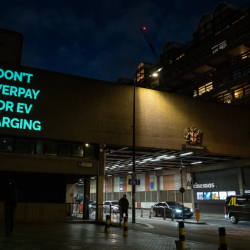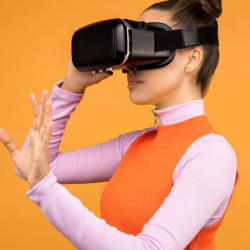There’s no denying the pandemic has changed our world forever – in many ways for the better. Digital transformation forced businesses to operate in new and innovative ways; the travel hiatus demonstrated the potential for a greener world; and organisations opened up production lines to manufacture everything from hand sanitiser to ventilators and PPE. In the effort to support the greater good, we’ve seen a palpable shift from profit, towards value and purpose.
Accountability goes two ways
The pandemic has accelerated the rise of the socially conscious consumer and the conscious investor, both of whom want the brands they invest in to have ‘purpose’. It’s a subject that’s front of mind with all the World Media Group brands and our advertisers. At TIME, we recently hosted a discussion about ‘purpose in marketing’ with around 80 global CMOs, and the discussion leant into what purpose meant not only to shareholders; but to other stakeholders – your employees, your consumers, and to society as a whole. The challenge and opportunity is understanding how these stakeholders knit together and how you can be accountable and serve all; they can work together.
This idea of stakeholder capitalism is intrinsically linked to brand purpose and value. The last 12 months have given businesses the opportunity to reflect on what their company really stands for, and which issues it should align with. Authenticity is a key concern expressed by CMOs and senior marketeers I talk to. Virtue signalling or simply jumping on a popular topic or trend gets called out quickly – you have to walk the walk now and brands must firstly look inwards at their own values: what they stand for and believe in.
Balancing profit with purpose
As the world resets, issues like sustainability and inequality are high on the agenda with many organisations following the voluntary blueprint outlined in the UN’s Sustainable Development Goals. The World Media Group’s Annual Content Survey revealed that 80% of advertisers are now committed to an ESG strategy or the UN’s SDGs, so the desire for change is there.
But with sustainability, for example, you can’t push your merits without demonstrating a plan towards real transition. This responsibility sits across the entire organisation requiring strong leadership and commitment. It needs to become part of the company’s DNA and the milestones celebrated.
It’s the plan that matters and being accountable to progress. Industries and organisations will move at different speeds, each having its own set of challenges and opportunities. In the Energy sector there’s a real desire to evolve but there are legacy challenges to work through, and energy demand continues to grow. This unique set of variables doesn’t mean we should be less ambitious with the Net Zero aims, but it does mean we probably shouldn’t make comparisons with a tech start-up.
Many organisations are looking at how they can play a role in accelerating the evolution and transformation of other sectors through green bonds and blue bonds to ensure a sustainability focus and greater collaboration. HSBC, Lombard Odier and Mirova have come together as the founding partners of Natural Capital Investment Alliance established by HRH The Prince of Wales. This genuine shift in infrastructure and the mobilisation of resources to support Natural Capital opportunities is a real change, and will drive a progressive agenda.
Understanding your social impact
We’re starting to see that profit and purpose can co-exist and brands can genuinely influence social change with their actions. The pandemic shook economies and delivered a period of introspection, forcing us to re-evaluate this balance.
There has been a greater degree of visible collaboration in industries and sectors where privacy and secrecy has been typical. In Pharma, for example, where R&D pipelines and developing company IP takes up huge proportions of investment, we saw Oxford University and AstraZeneca combine, J&J with Merck, Pfizer and BioNTech and many more. Purpose was seemingly put before revenue. The ‘climate crisis’ is the next imminent threat and I think we’ll see increasing levels of collaboration here.
From a brand perspective, organisations seen to be acting progressively are stronger because of it: McClaren, UPS, BASF and HPE to name a few. This wasn’t simply about financial aid; they took action and provided utility, and this resonates with people.
Sectors that were almost invisible to us pre-pandemic have had their moments to shine. Logistics companies have kept goods on our shelves and nurses and doctors in PPE. Our TIME 100 Companies ‘Most Influential’ list looked at ‘impact’ as a measure, and included Maersk, Fedex and UPS, largely for their role in the pandemic. They feature alongside SpaceX and Peloton, which highlights the purpose every brand can find, not just the shiny new ones that grab headlines.
A brand’s role post-pandemic may need to change: the logistics sector has a role to play in driving the sustainability agenda, ensuring the SME in Brighton can compete on equal footing with Amazon in global markets. ‘Purpose’ has a context.
Applauding commitment
It’s worth remembering that the shift from profit to purpose rarely happens overnight and digital acceleration adds another layer of complexity, guaranteeing that many businesses will be very different in five years’ time. Leaders must understand the value of communicating to their customers about who they are, where they are now, and where they want to get to.
Fifteen months ago, Bernard Looney took over as CEO of BP and detailed a new vision, a new purpose ‘Reimagining Energy for People and our Planet’, followed by a plan around how the business wanted to deliver Net-Zero. This was communicated to customers, employees and investors and designed to drive change: ‘We don’t just need to, we want to’.
The vision should be applauded, as should being accountable to the plan. Different businesses will move at different paces because of their unique set of circumstances. The UN’s Global Goals are designed to be a ‘blueprint to achieve a better and more sustainable future for all’. They are not contractual or legal but are being adopted; we need transparency and accountability. I’m an optimist and to quote TIME’s president, Marc Benioff, ‘Business can be the greatest platform for change’.
The World Media Group members all have a role to play in this, providing brands with the right media environment to tell their success stories. ‘Social Good’ is now a standalone category in our World Media Awards, and I’m looking forward to seeing how brands are using corporate action to influence genuine social change.
Featured image: Tim Mossholder / Unsplash.com



































